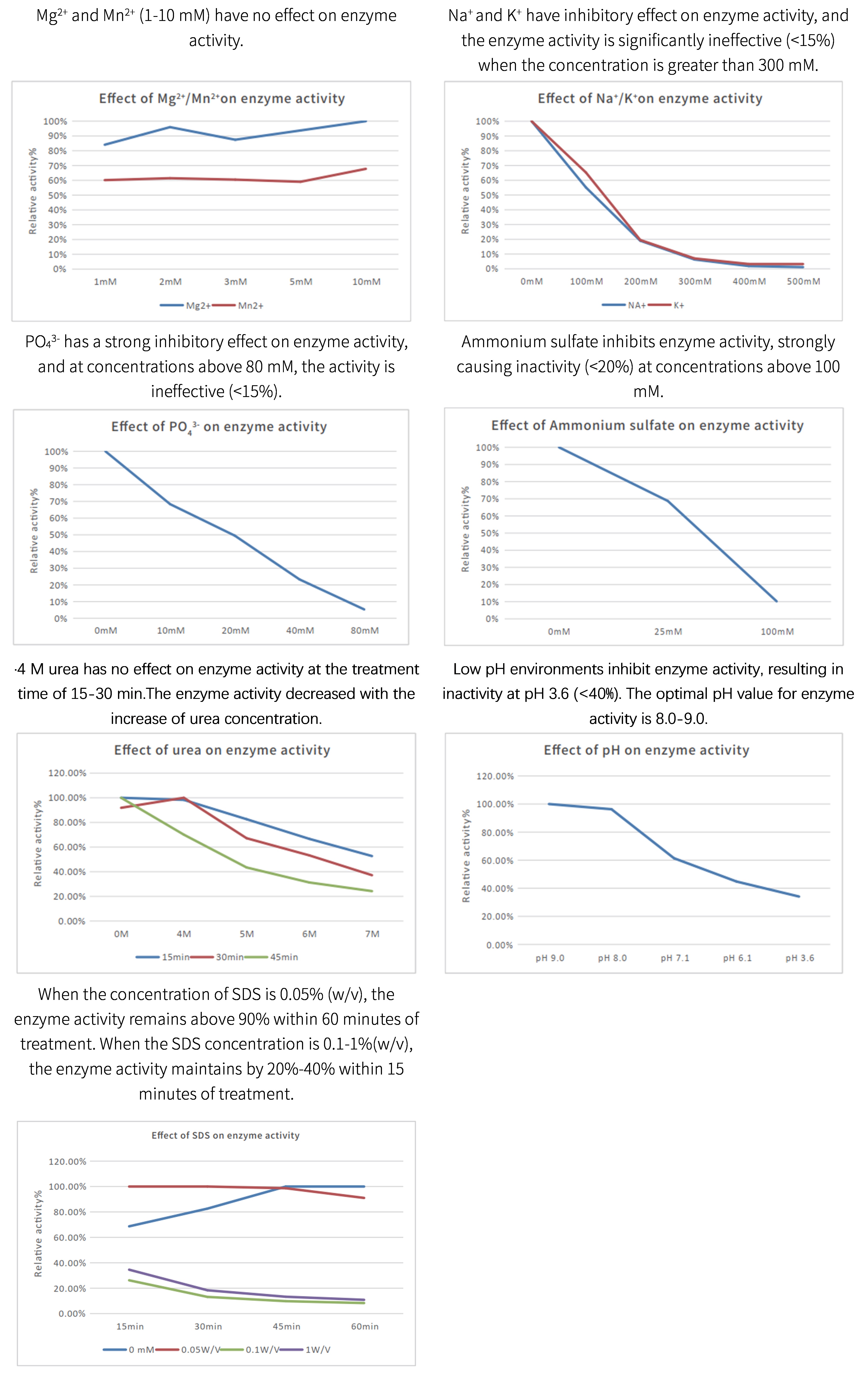Biological products produced in cells, such as viral vaccines and viral vectors, contain residual DNA from the host cell substrates. Theoretically, residual DNA could deliver activated oncogenes and potentially infectious viral genomes to patients and induce carcinogenic or infectious events. Regulatory agencies around the world have set regulatory limits for residual DNA to ensure patient safety. During the production process, manufacturers need to reduce the content of such impurities through specific methods to meet the regulatory requirements. In addition, nucleic acid substances produced during upstream cell culture or cell lysis can significantly increase the viscosity of the solution, affecting the efficiency of downstream process steps.
Intelli nuclease is an omnipotent endonuclease expressed in recombinant E. coli, originally from Serratia marcescens. The enzyme is composed of two identical subunits (approximately 27.5KDa), is a non-specific nuclease that can completely and efficiently degrade any form of DNA and RNA (single-stranded, double-stranded, linear, circular, supercoiled) into oligonucleotide of 2-5 bases in length.
Applications
Remove DNA/RNA in protein purification process, to reduce viscosity, simplify clarification process, and effectively improve yields
Prepare samples for ELISA, chromatography, 2D electrophoresis, and blotting, improving resolution and recovery. Eliminate host cell DNA/RNA residues during vaccine and protein manufacturing, improving product safety.
Prevent cell clumping during cell culture, including PBMC, chimeric cell mixture preparation.
Reaction Conditions
Optimum reaction conditions: pH 6-10 (prefer pH 8-9), 1-2 mM Mg2+, 0-150 mM NaCI, 0-42°C (prefer 37 °C)
Enzyme activity will be significantly inhibited (reduction rate>50%) if monovalent cations >300 mM, PO43+>100 mM, (NH4)2SO4>100 mM
The enzyme is compatible with PMSF (1 mM), EDTA (1 mM), reducing agents (e.g. DTT) , detergents (e.g. Triton).
Manufacturing standard
Product Name | Nuclease, Serratia marcescens extracellular endonuclease |
CAS No. | 9025-65-4 |
Form | Active substance; monomer |
Appearance | Colorless, no particles |
Expression system | Non-pathogenic Escherichia Coli, BL21(DE3) |
Source | Recombinant E. coli modified by nuclease gene |
Formula | 50 mM Tris-HCl, 100 mM NaCl, 5% glycerol, 2 mM Mg2+, pH8.0 |
Storage | -20 ℃, avoid repeated frozen-thaw |
Endotoxin content | < 0.5 EU/mg |
SEC-HPLC (%) | ≥99% |
SDS-PAGE (%) | ≥99% |
Molecular weight | 27501.51 Da |
Theoretical molecular weight | 27500.81 Da |
Enzyme activity | >250 U/μL |
Stability Data

0.4%(w/v) of TritonTM X-100 has no effect on enzyme activity, and 1.0%(w/v) of TritonTM X-100 hads inhibitory effect on enzyme activity.
PMSF, maleic acid and 2-mercaptoethanol have no effect on enzyme activity at 1 mM
EDTA-2Na inhibited about 60% of the enzyme activity at 1 mM concentration.
Reaction condition | Relative enzyme activity | Reaction condition | Relative enzyme activity | Reaction condition | Relative enzyme activity |
Triton-0.4% (W/V) | >80% | PMSF-0mM | >80% | Control | 100% |
Triton-1.0% (W/V) | >20% | PMSF-1mM | >80% | EDTA-2Na-1mM | >60% |
Maleic acid-1mM | >80% | PMSF-3mM | >80% | 2-Mercaptoethanol | >80% |
Ordering Information
Specifications | Part No. |
500 KU/vial | DNRG0302500-GMP (in-stock) |
1 MU/vial | DNRG0302001-GMP (in-stock) |
5 MU/vial | DNRG0302005-GMP (in-stock) |
Relevant Documents
Copyright © Shanghai Duoning Biotechnology Co., Ltd. All Rights Reserved Sitemap | Technical Support: 
Message-